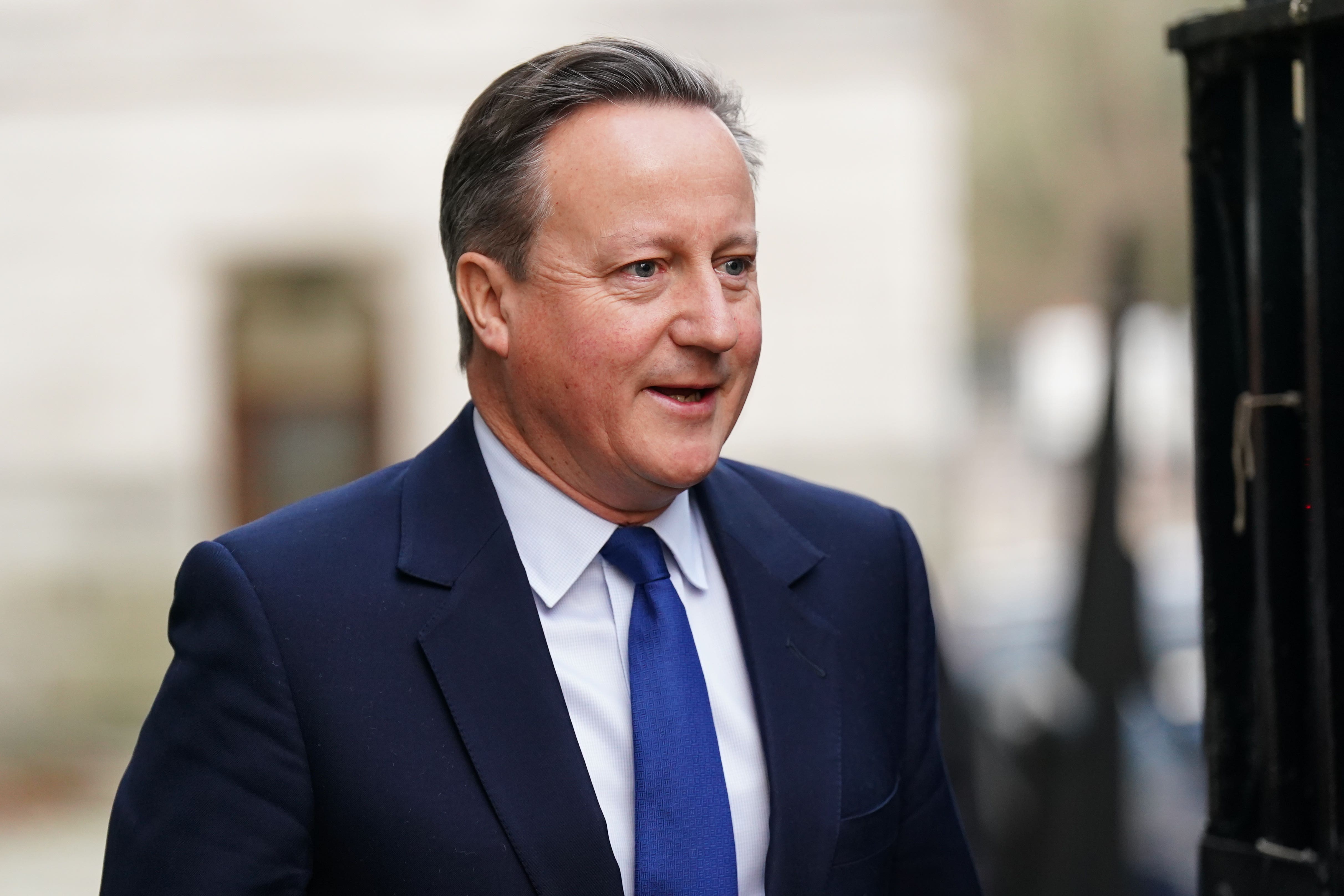Cameron to push for action on ‘desperate’ Gaza situation in Middle East visit
Foreign secretary planning talks as UK seeks to build support for plan to move to ceasefire without return to hostilities
Your support helps us to tell the story
From reproductive rights to climate change to Big Tech, The Independent is on the ground when the story is developing. Whether it's investigating the financials of Elon Musk's pro-Trump PAC or producing our latest documentary, 'The A Word', which shines a light on the American women fighting for reproductive rights, we know how important it is to parse out the facts from the messaging.
At such a critical moment in US history, we need reporters on the ground. Your donation allows us to keep sending journalists to speak to both sides of the story.
The Independent is trusted by Americans across the entire political spectrum. And unlike many other quality news outlets, we choose not to lock Americans out of our reporting and analysis with paywalls. We believe quality journalism should be available to everyone, paid for by those who can afford it.
Your support makes all the difference.David Cameron will meet Israeli and Palestinian leaders during a visit to the Middle East in a bid to ease the “desperate” situation in Gaza.
The foreign secretary will hold talks with Benjamin Netanyahu in which he will raise concerns about the high number of civilian casualties and call for more and faster action to get life-saving aid into the besieged enclave.
He is also expected to press the need for water, fuel and electricity to be restored as he calls for an “urgent humanitarian pause” .
And he will reiterate demands that Hamas agree to release of all hostages and give up control of Gaza, as well as hold talks with Qatar and Turkey.
He will arrive in the Middle East as tensions run high, following deadliest day for Israeli forces of the Gaza war.
President Netanyahu is also facing increasing pressure over his leadership and his handling of the war effort.
Rishi Sunak has resisted calls to back an immediate ceasefire, arguing for ‘humanitarian pauses’ to allow politicians to build a cessation in the fighting that can last.
Foreign Secretary David Cameron said: “No-one wants to see this conflict go on a moment longer than necessary. An immediate pause is now necessary to get aid in and hostages out. The situation is desperate.
“This week I am in the Middle East working with partners to help build a plan to move from that pause to a sustainable, permanent ceasefire without a return to hostilities.
“Such a plan would require Hamas to agree to the release of all hostages, Hamas to no longer be in charge of Gaza launching rocket attacks at Israel, and an agreement in place for the Palestinian Authority to return to Gaza in order to provide governance and services and, increasingly, security.”
Twenty-four people were killed on Monday in the deadliest day for Israeli forces in its three-month war against Hamas, as Palestinian casualties also continue to climb.
During his visit Lord Cameron will travel to Israel, the occupied Palestinian territories, as well as Qatar and Turkey, both key players in the region.
In Israel, the Foreign Secretary will also speak to the Israeli foreign minister as he calls for more crossing points for aid to be opened for longer.

He will also meet President Abbas from the Palestinian Authority to highlight the UK’s long-term support for a two-state solution.
In Qatar, he is expected to hold talks on efforts to secure the safe release of hostages, pressing the cases of British and dual nationals.
The war has displaced an estimated 85 per cent of Gaza's population and left more than 25,000 Palestinians dead, according to health officials in the Hamas-run territory.
The United Nations and international aid agencies also warn the fighting has caused a humanitarian disaster, with a quarter of Gaza's 2.3 million people facing starvation.

Join our commenting forum
Join thought-provoking conversations, follow other Independent readers and see their replies
Comments